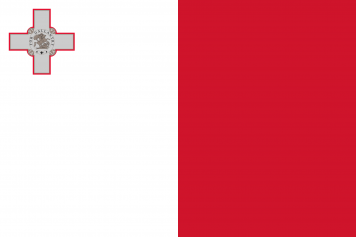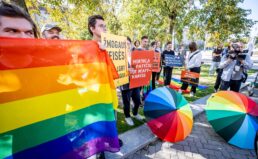Slovakia’s time at the helm of the EU’s rotating presidency has not been completely smooth sailing and its successor, Malta, will hope to guide the bloc’s agenda controversy-free. Recent successes in social issues point towards a presidency quite different from the last.
During its six months holding its first EU presidency, Slovakia faced criticism about its migration policy and procurement rules. Slovakian Prime Minister Robert Fico even called journalists “dirty anti-Slovak prostitutes” for shining the spotlight on the allegations.
As it cedes the presidency to Malta, which will also be sitting in the hotseat for the first time, the spotlight will shift onto the tiny Mediterranean island.
The Maltese have already announced a number of priorities for the coming six months, including getting more women into work and promoting LGBT issues.
Malta also wants to prioritise migration and has pledged to focus on the implementation of the EU’s much-criticised and sluggish refugee quota programme.
Valletta will be carrying a certain amount of good faith into its presidency too, after a number of positive developments in social issues.
Youth unemployment across the EU is a significant challenge facing the member states and Brussels has taken a number of steps to address the problem, including the Youth Guarantee scheme. Malta formally launched the programme in 2014 and has seen its unemployment figures drop as a result.
Before it launched the scheme, youth unemployment was around 16% in January 2013. As of September of this year, it has dropped below 10%. Only Germany has a lower rate among the member states.
Admittedly, Malta is the smallest EU country with only 423,000 inhabitants, just 0.08% of the bloc’s population, but its Labour government, which took power in 2013 after 15 years in opposition, has worked wonders after ditching any notion of Euroscepticism and deciding to focus on social issues.
That commitment also extends to civil liberties, as Malta Monday (5 December) made history by becoming the first EU nation to ban gay conversion therapy. The practice aims to “cure” people of their homosexuality and its most notable advocate is Donald Trump’s Vice-President-elect, Mike Pence.
The Maltese parliament passed a bill that criminalises the practice and anyone found offering it could face a sizeable fine or even a prison sentence.
Malta has a long track record of advocating for LGBT rights and it is regularly ranked first in indexes charting countries’ attitudes towards homosexuals. It is one of only five countries in the world, along with Bolivia, Ecuador, Fiji and the United Kingdom, to have made LGBT rights equal at a constitutional level.
This is in contrast to its EU presidency predecessor, Slovakia, where homosexuality does not enjoy the same level of acceptance. Same-sex marriages are not recognised and adoption is not allowed.
Although Malta is one of the EU’s smaller players, its approach to social issues could offer the rest of the bloc a good case example to follow, and it has already voiced its hopes that “our experiences can rub off on our European partners”.




